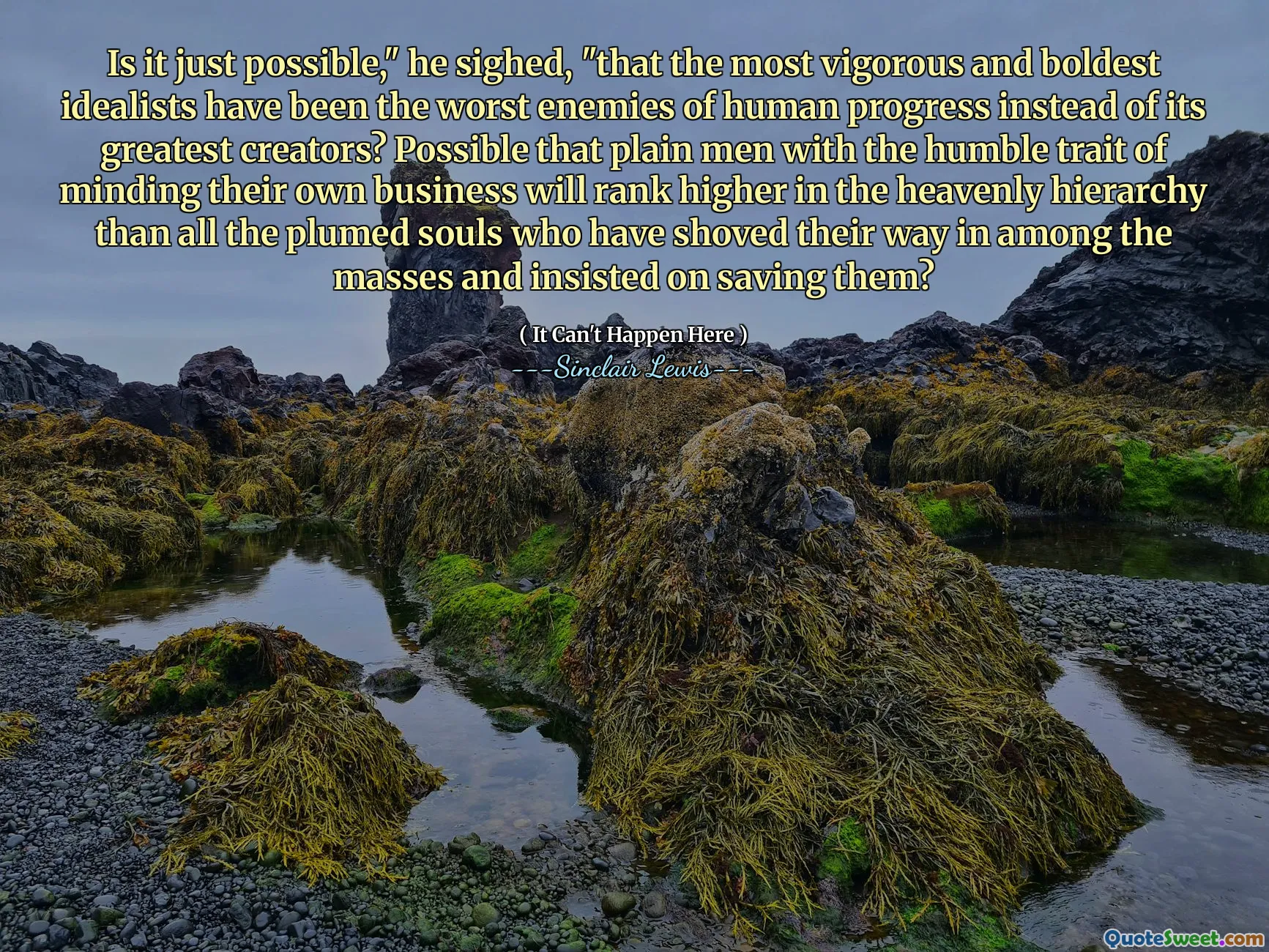
Is it just possible," he sighed, "that the most vigorous and boldest idealists have been the worst enemies of human progress instead of its greatest creators? Possible that plain men with the humble trait of minding their own business will rank higher in the heavenly hierarchy than all the plumed souls who have shoved their way in among the masses and insisted on saving them?
In Sinclair Lewis's narrative, the protagonist reflects on the role of idealists in society. He questions whether those who are most passionate and assertive about their ideals have actually hindered human progress rather than being its champions. This introspection suggests a critique of the often loud voices that claim to lead others towards a better future, implying that their interference might do more harm than good. Additionally, he considers the value of ordinary individuals who focus on their own lives without imposing their visions on others. This idea posits that such humility and restraint could be more commendable and beneficial than the actions of those who aggressively pursue their ideals, suggesting a reprioritization of what constitutes true contribution to society.
In Sinclair Lewis's narrative, the protagonist reflects on the role of idealists in society. He questions whether those who are most passionate and assertive about their ideals have actually hindered human progress rather than being its champions. This introspection suggests a critique of the often loud voices that claim to lead others towards a better future, implying that their interference might do more harm than good.
Additionally, he considers the value of ordinary individuals who focus on their own lives without imposing their visions on others. This idea posits that such humility and restraint could be more commendable and beneficial than the actions of those who aggressively pursue their ideals, suggesting a reprioritization of what constitutes true contribution to society.






